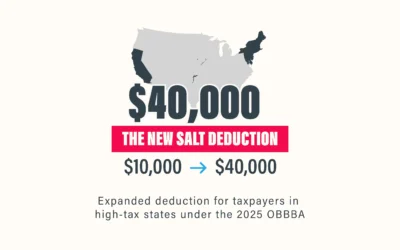For #individuals
To Refund or Rollforward?
When filing your #taxes, you may end up in a position where your total tax owed is less than the tax you paid during the year. This means you overfunded your tax piggybank! By law, the IRS must give you the option to receive a #refund of those overpaid tax dollars back to your bank account. The second option is to apply those dollars to next year’s taxes.
You may be asking, “Which one is the better play?”.
The short answer is – it depends!
The main reason you may prefer rolling the overpaid tax forward into next year’s payments is if you are about to make your next quarterly estimate payment [of a similar amount to the potential refund] and can simplify the cash transactions.
Much more commonly, you will want to take the refund – and where is why!
Up until recently, the impact of not taking a refund was a simple calculation of the lost investment earnings during the year. Basically, if those dollars were invested instead of sitting with the IRS, how much investment return could they generate until they are due?
However, with the significant and sudden increase in #inflation, there is now a much bigger implication to over-funding your tax account with the IRS. Those dollars are stuck at their value when you put them in! If inflation is 7% a year, not only are you losing out on the investment gains, you are also falling behind on the value of the dollar itself. It can quickly become a lose-lose for you, and a win-win for the IRS. (FYI – The IRS is NOT paying you any interest on the excess tax dollars sitting in your account if you put them there…ouch!)
The theme here is simple: Put your money to work through smart investing first, and address the taxes second.
Proper tax strategy and planning with your #advisor will help you understand how much must go into your tax piggybank during the year, and when. Stay informed, stay ahead.


